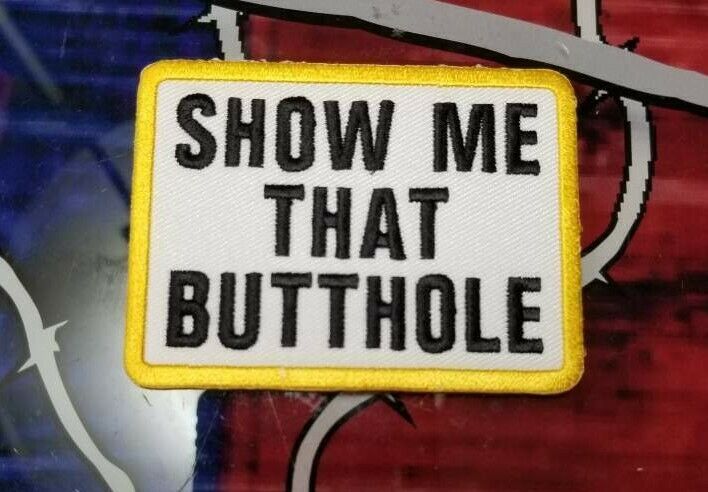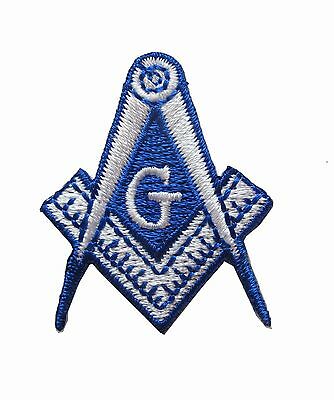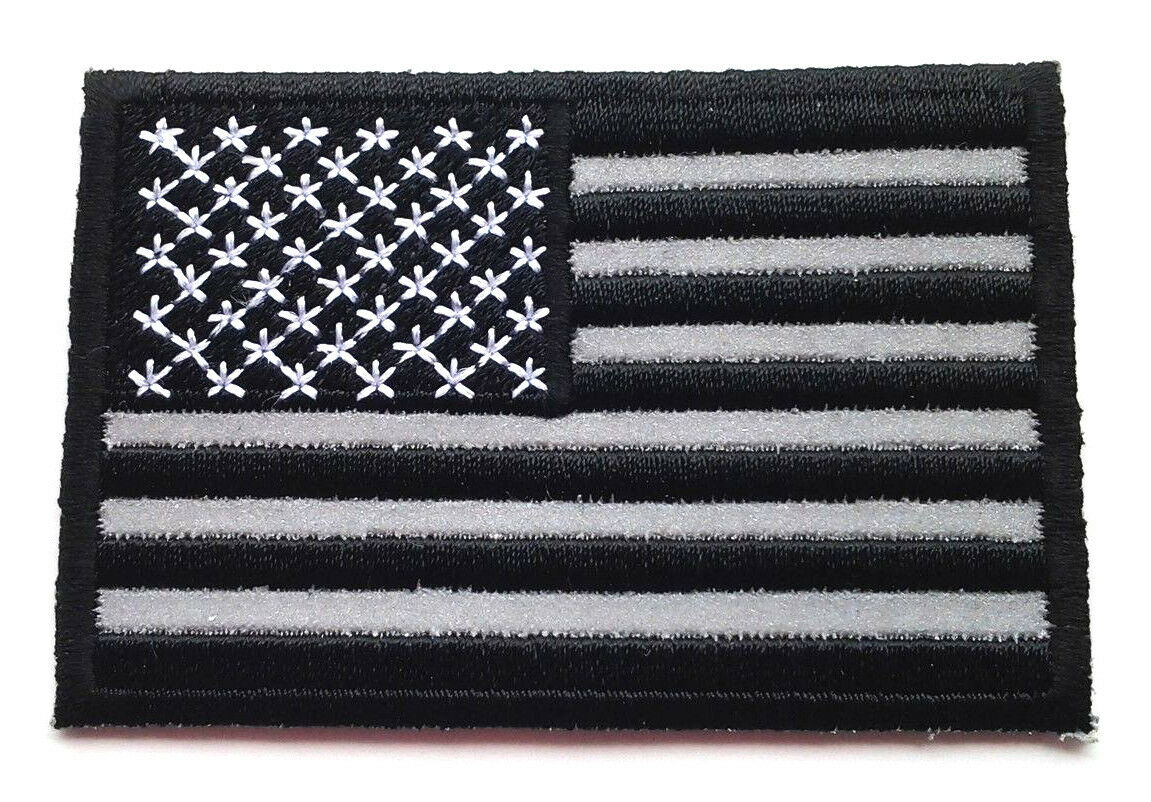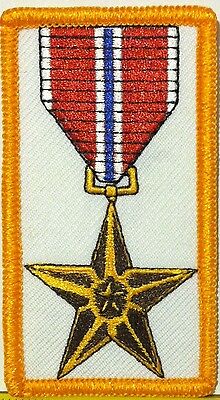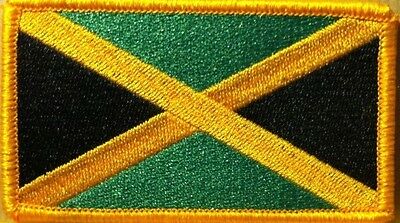-40%
ST. GEORGE SAINT MOUNTED CROSS SHIELD SILVER EMBROIDERED IRON-ON PATCH 4.5"H
$ 5.25
- Description
- Size Guide
Description
VEGASBEEVEGASBEE®
p r e s e n t s
ST. GEORGE
SAINT ON
HORSE SLAYING DRAGON CROSS SHIELD
CHRISTIAN SILVER METALLIC EMBROIDERED
IRON-ON PATCH
D E S C R I P T I O N
SIMPLY THE BEST!
TOP NOTCH EMBROIDERY!
UNIQUE VERY SPIRITUAL GIFT!
BRAND NEW WELL-MADE ITEM!
GREAT ITEM! HONEST PRICE! SUPERB QUALITY!
VERY BEAUTIFUL DESIGN!
HIGHEST QUALITY EMBROIDERY!
SAINT GEORGE SLAYING DRAGON CHRISTIAN PATCH.
St. George Christian Martyr Warrior, mounted on horse slaying the evil Dragon. Saint George has an important place in the religious traditions of many lands. The depiction of George on horse symbolizes victory over the devil the ancient serpent.
Christian amulet is a talisman charm often inscribed with a magic incantation, prayer or symbol to protect the wearer against evil (as disease or witchcraft) and to aid.
Very good solid size is measured 4.5" x 3.5" inches (11.5 cm by 9 cm) with very robust material thickness. Very beautiful silver metallic thread embroidery over black canvas twill fabric. Iron-on backside coating. Superb craftsmanship!
VEGASBEE® COPYRIGHTED DESIGN!
SOLID QUALITY! Truly well-made item. Very detailed craftsmanship, superb embroidery. Manufactured using proprietary digitizing software & embroidering technology on the best million dollar industrial machinery and equipment. Made with TLC - Tender, Love & Care!
EMBROIDERY LOOKS SUPER ON BLACK LEATHER BIKER/ROCKER STYLE JACKET, VEST, HOODIE AND DENIM!
GREAT UNIQUE SPIRITUAL COLLECTIBLE & PERFECT SOLID GIFT FOR CHRISTIAN MEMORABILIA AFICIONADOS!
EVEN BETTER THAN PICTURES IN PERSON!!
>>~~~>
SAINT GEORGE.
Saint George (ca. 275/281 – 23 April 303) was, according to tradition, a Roman soldier from Syria Palaestina and a priest in the Guard of Diocletian, who is venerated as a Christian martyr. In hagiography Saint George is one of the most venerated saints in the Catholic (Western and Eastern Rites), Anglican, Eastern Orthodox, and the Oriental Orthodox churches. He is immortalized in the tale of Saint George and the Dragon and is one of the Fourteen Holy Helpers. His memorial is celebrated on 23 April, and he is regarded as one of the most prominent military saints.
Many Patronages of Saint George exist around the world, including: Bulgaria, Aragon, Catalonia, England, Ethiopia, Georgia, Greece, India, Iraq, Lithuania, Israel, Portugal, Serbia, Ukraine and Russia, as well as the cities of Genoa, Amersfoort, Beirut, Fakiha, Bteghrine, Cáceres, Ferrara, Freiburg, Kumanovo, Ljubljana, Pomorie, Preston, Qormi, Rio de Janeiro, Lod, Lviv, Barcelona, Moscow, Tamworth and the Maltese island of Gozo, as well as a wide range of professions, organizations and disease sufferers.
HTTPS://en.wikipedia.org/wiki/Saint_George
ST.GEORGE.
According to the Encyclopaedia Britannica, Saint George probably lived during the 3rd century and died in Lydda, Palestine [now Lod, Israel]. His feast day is April 23. "He was an early Christian martyr who during the Middle Ages became an ideal of martial valour and selflessness. He is the patron saint of England."
".... Legends about him as a warrior-saint, dating from the 6th century, became popular and increasingly extravagant. Jacob de Voragine's Legenda aurea (1265-66; Golden Legend) repeats the story of his rescuing a Libyan king's daughter from a dragon and then slaying the monster in return for a promise by the king's subjects to be baptized. George's slaying of the dragon may be a Christian version of the legend of Perseus, who was said to have rescued Andromeda from a sea monster near Lydda. It is a theme much represented in art, the saint frequently being depicted as a youth wearing knight's armour with a scarlet cross...."
From Britannica Online, Copyright © 1996 Encyclop?dia Britannica, Inc. All Rights Reserved
SAINT GEORGE AND THE DRAGON.
The best known form of the legend of St. George and the Dragon is that made popular by the "Legenda Aurea", and translated into English by Caxton. According to this, a terrible dragon had ravaged all the country round a city of Libya, called Selena, making its lair in a marshy swamp. Its breath caused pestilence whenever it approached the town, so the people gave the monster two sheep every day to satisfy its hunger, but, when the sheep failed, a human victim was necessary and lots were drawn to determine the victim. On one occasion the lot fell to the king's little daughter. The king offered all his wealth to purchase a substitute, but the people had pledged themselves that no substitutes should be allowed, and so the maiden, dressed as a bride, was led to the marsh. There St. George chanced to ride by, and asked the maiden what she did, but she bade him leave her lest he also might perish. The good knight stayed, however, and, when the dragon appeared, St. George, making the sign of the cross, bravely attacked it and transfixed it with his lance. Then asking the maiden for her girdle (an incident in the story which may possibly have something to do with St. George's selection as patron of the Order of the Garter), he bound it round the neck of the monster, and thereupon the princess was able to lead it like a lamb. They then returned to the city, where St. George bade the people have no fear but only be baptized, after which he cut off the dragon's head and the townsfolk were all converted. The king would have given George half his kingdom, but the saint replied that he must ride on, bidding the king meanwhile take good care of God's churches, honour the clergy, and have pity on the poor. The earliest reference to any such episode in art is probably to be found in an old Roman tombstone at Conisborough in Yorkshire, considered to belong to the first half of the twelfth century. Here the princess is depicted as already in the dragon's clutches, while an abbot stands by and blesses the rescuer.
From Catholic Encyclopedia, Volume VI
Copyright © 1909 by Robert Appleton Company
GREAT-MARTYR GEORGE THE TROPHY-BEARER.
Lives of the Saints - Greatmartyr George the Trophybearer
6 May and 16 November (23 April and 3 November according to the Church Calendar)
The Greatmartyr George was the son of wealthy and pious parents, who raised him in the Christian faith. He was born in the city of Beirut (in antiquity Berytos), at the foot of the Lebanese mountains.
Having entered military service, the Greatmartyr George stood out among the other soldiers by virtue of his mind, valor, physical strength, military bearing and beauty. Having quickly attained to the rank of millenary [tribunus militum, an officer in the Roman army in charge of a thousand or more soldiers trans], Saint George became a favorite of the Emperor Diocletian.
Diocletian was a talented ruler, but a fanatical adherent of the Roman gods. Having set for himself the goal of reviving dying paganism in the Roman Empire, he went down in history as one of the most cruel persecutors of Christians.
Once, when he heard in a court the inhuman sentence concerning the annihilation of Christians, Saint George became inflamed with compassion for them. Foreseeing that sufferings were also awaiting him, George distributed his property to the poor, freed his slaves, appeared before Diocletian and, having revealed himself as a Christian, denounced him for cruelty and injustice. George's speech was full of powerful and convincing objections against the imperial order to persecute Christians.
After futile persuasions to deny Christ, the Emperor ordered that the saint be subjected to various tortures. Saint George was confined in a dungeon, where they placed him supine on the ground; his legs they confined in stocks, and on his breast they placed a heavy stone. But Saint George manfully endured the sufferings and glorified the Lord. Then George's torturers began to refine their cruelty. They beat the Saint with oxhide whips, subjected him to the wheel, threw him into quicklime and forced him to run in shoes with sharp nails inside. The holy Martyr endured everything patiently. Finally, the Emperor ordered the Saint's head to be cut off. Thus, the holy sufferer departed unto Christ in Nicomedia in 303 AD.
The Greatmartyr George, for his manliness and for his spiritual victory over the torturers, who could not force him to renounce Christianity, and likewise for his wonderworking assistance to people in danger is additionally called the "Trophybearer". The relics of Saint George the Trophybearer were placed in the Palestinian city of Lydda, in the church that bears his name, while his head was preserved in Rome, in the church that is also dedicated to him.
On icons, the Greatmartyr George is depicted sitting on a white horse and smiting a dragon with a spear. This depiction is based on tradition and relates to the posthumous miracles of the holy Greatmartyr George. It is said that not far from the place where Saint George was born in the city of Beirut, in a lake lived a dragon which frequently devoured people of that locale. What kind of beast that was, a python, crocodile or large lizard is not known.
In order to appease the wrath of that dragon, the superstitious inhabitants of that locale began regularly by lot to give up to it a youth or maiden to be eaten. Once the lot fell on the daughter of the ruler of that locale. They took her to the shore of the lake and tied her up where she began to await in terror the appearance of the dragon.
When the beast began to approach her, suddenly a radiant youth appeared on a white horse who smote the dragon with a spear and saved the maiden. This youth was the holy Greatmartyr George. By such a miraculous appearance he caused the extermination of youths and maidens to cease in the environs of Beirut and converted to Christ the inhabitants of that country, who until then were pagans.
One may suppose that Saint George's appearance on a horse to defend the inhabitants from a dragon and likewise the description in his life of the miraculous reviving of a farmer's only ox, served as the cause for honoring Saint George as a protector of animal husbandry and as a defender from predatory beasts.
In prerevolutionary times, on the day of Saint George's commemoration, the inhabitants of Russian villages, for the first time after the cold winter, would drive their animals out to pasture, after having performed a moleben to the holy Greatmartyr along with the sprinkling of homes and animals with holy water.
The Greatmartyr George is a protector of the army. The depiction of George the Trophybearer on a horse symbolizes victory over the devil the ancient serpent. This depiction was included in the ancient coat of arms of the city of Moscow.
From Parish Life. The Russian Orthodox Cathedral of St. John the Baptist, Washington, D.C.
S H I P P I N G
***We combine S&H on multiple items!***
(just request a combined invoice after you are done bidding)
PayPal—eBay's service to make fast, easy, and secure payments for your eBay purchases!
We accept eBay official forms of payment only!
PLEASE VISIT VEGASBEE ONLINE STORE
PRODUCT 10007
VEGASBEE®








